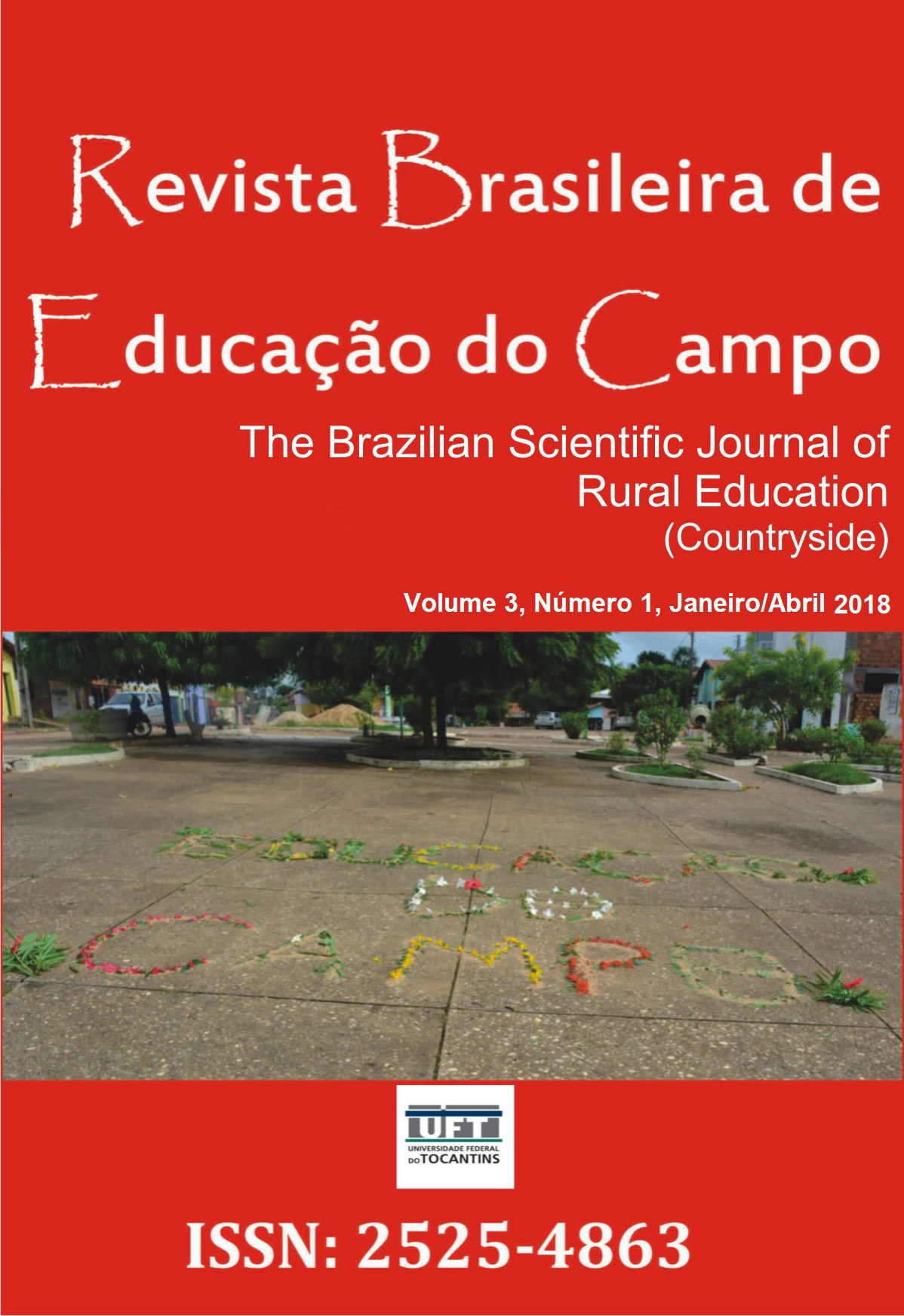Martín Rodríguez Vivanco y la Sociología de la educación en Cuba
DOI:
https://doi.org/10.20873/uft.2525-4863.2018v3n1p05Abstract
ABSTRACT. The present article, has the objective to expose about the contribution of Martín Rodríguez Vivanco related to the sociology development of the education in Cuba during the neo-colonial Republic period and the transcendence of its conceptions at the present time. A deep bibliographic consultation was done and as a result was verified the assumption in his work of didactic advances of the motion of the New School, the ones that made suitable creatively to the content of the subject Pedagogic Sociology that he used to teach at the University of Havana. The realized systematization, showed that Martin Rodriguez Vivanco conceptions about the sociology of the education theory are expressed at the treatment that he made about its object of study, the relation with other sciences, its main categories, among others, that constitute the point of departure to the study of this science in the country and serve to clear and support the roots of the cuban pedagogy.
Downloads
Literaturhinweise
Añorga, J. (2012). La producción intelectual: proceso organizativo y pedagógico. La Habana: Editorial Universitaria.
Blanco, A. (2004). Introducción a la Sociología de la educación. La Habana, Cuba: Editorial Pueblo y Educación.
Buenavilla, R. (2004). Ficha de resultado 2. Proyecto: Figuras destacadas de la cultura nacional: contribución al desarrollo de la educación y la teoría pedagógica cubana. La Habana: Instituto Superior Pedagógico Enrique José Varona.
Buenavilla, R. (2007). Influencias educativas: factores objetivos y subjetivos. Dialéctica de su desarrollo. La Habana: Instituto Superior Pedagógico Enrique José Varona.
Comisión Nacional Cubana De La Unesco. (1992). Enrique José Varona. Trabajos sobre educación y enseñanza. La Habana: Editorial Pueblo y Educación.
Chávez, J. Suárez, A & Permuy, L D. (2005). Acercamiento necesario a la pedagogía general. Editorial Pueblo y Educación.
Fullat, O. (1995). Filosofías de la educación. Barcelona.
López, J., Miranda, O L., Cobas, M., Valera, O., & Chávez., J. (2000). Fundamentos de la Educación. La Habana: Editorial Pueblo y Educación.
Luzuriaga, L. (1960). La pedagogía contemporánea. Buenos Aires: Editorial Losada. S A.
Martí, J. (1884, mayo). Maestros ambulantes. La América. Nueva York. Obras Completas. Tomo. 8.
Martí, J. (1885, 4 de diciembre). Los indios en los Estados Unidos. La Nación. Buenos Aires. Obras Completas. Tomo. 10.
Martí, J. (1890, marzo). Haití y los Estados Unidos. Periódico El Partido Liberal. México. Obras Completas. Tomo. 12.
Mesa, L. (2013). La obra educativa de Martín Rodríguez Vivanco (Tesis de doctorado). Universidad de Ciencias Pedagógicas Enrique José Varona, La Habana.
Rivero, Y., & Proveyer, C. (2005). Selección de lecturas de Sociología y Política Social de la Educación. La Habana: Editorial Félix Varela.
Rodríguez, M. (1926). La labor pedagógica de la Sociedad Económica de Amigos del País (Tesis). La Habana: Universidad de La Habana.
Rodríguez, M. (1926). El problema campesino. El País. 17(1), 5-6.
Rodríguez, M. (1937). Introducción a la Sociología Pedagógica. La Habana: Editorial Cultural S A.
Rodríguez, M. (1943). Introducción a la Sociología Pedagógica. La Habana: Editorial Cultural S A.
Rodríguez, M. (1953). Sociología Pedagógica. I Parte. La Habana: Publicaciones Cultural SA.
Varela, F. (1829). El mensajero semanal. T. 1. 43. Nueva York.
Varela, F. (1992). Misceláneas filosóficas. La Habana: Editorial Pueblo y Educación.
Veröffentlicht
Zitationsvorschlag
Ausgabe
Rubrik
Lizenz
Creative Commons Attribution License
Creative Commons Attribution License
Proposal for Copyright Notice Creative Commons
1. Policy Proposal to Open Access Journals
Authors who publish with this journal agree to the following terms:
A. Authors retain copyright and grant the journal right of first publication with the work simultaneously licensed under the Creative Commons Attribution License that allows sharing the work with recognition of its initial publication in this journal.
B. Authors are able to take on additional contracts separately, non-exclusive distribution of the version of the paper published in this journal (ex .: publish in institutional repository or as a book), with an acknowledgment of its initial publication in this journal.
C. Authors are permitted and encouraged to post their work online (eg .: in institutional repositories or on their website) at any point before or during the editorial process, as it can lead to productive exchanges, as well as increase the impact and the citation of published work (See the Effect of Open Access).














